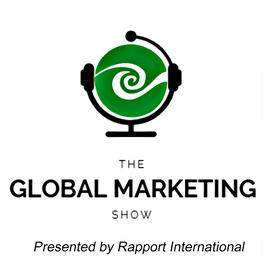
Artug Acar, COO of Mercury, knows what it’s like to move to a new country and start fresh. He also knows how to open a new international market for a company. Mercury supports innovation by simplifying the shipping of time- and temperature-sensitive product for healthcare and life sciences companies. Currently, the management team is conducting due diligence on geographic options for international expansion. Artug talked about all the areas that need to be looked at before launching, including but not limited to: Regulatory environment Market size and related market research Employment laws Availability of professional employer organizations (PEOs) Accounting and currency Software needs Legal requirements Availability of experienced employees Availability of advisors and consultants And even though a company can be diligent in its research, most of the time there will be unexpected challenges. Before Mercury, for example, Artug worked at Right Hand Robotics, where a prospect from Japan expressed an interest in the company’s robotic pick and pack solutions. While in Japan to install the system, the company learned that, unlike US and European consumers, Japanese consumers consider products with wrinkled packaging to be defective. Company engineers worked with the Japanese client to solve the problem, engineering the robots to operate more gently to avoid damage to the packaging. They pushed the boundaries and made a better product. The benefits inherent in the process extended beyond increased revenues, profits, and market share, says Artug. It gave the company information vital to making its product more competitive, leading to increased market share both domestically and internationally. As COO at Mercury, the management team had limited data on top markets, so asked stakeholders from each department (operations, sales, marketing, finance, product management) to analyze each specific area and report on the findings. After consolidating the information and a legal review, the company developed a short list of suppliers to support them. Ultimately, the company is trying to find out “what can go wrong.” Once successful in its target market, the company will start over to figure out its second market. It’s all about taking a calculated risk, explains Artug, one offering higher returns than any other growth opportunity. Artug believes that language must be a consideration from the beginning. Mercury considered English-speaking countries easier to enter, with fewer language barriers, yet only after weighing market opportunity and competition against new markets and translation. Key to future success in new markets will require translation that respects local language and culture, he adds. Artug’s favorite foreign phrase will resonate with travelers: 現地 現物 or Genchi Genbutsu is the Japanese phrase meaning “go see for yourself.” Links: Website: https://www.shipmercury.com/ LinkedIn: https://www.linkedin.com/in/artugacar/ In the Press: https://www.businessinsider.com/tb/the-list-of-300-people-transforming-business-in-2020-9/transformers/artug-acar https://www.businessinsider.com/manufacturing-leaders-discuss-data-and-automation-2021-4 https://www.businessinsider.com/righthand-robotics-exec-automation-is-a-necessity-2021-1 Additional Resources: Internationalization Readiness Quiz –https://softlandpartners.com/readiness-checklist/ Free consult about Global Content Management - https://www.rapporttranslations.com/request-a-consultation Connect with Wendy - https://www.linkedin.com/in/wendypease/ Music: Fiddle-De-Dee by Shane Ivers - https://www.silvermansound.com
From "The Global Marketing Show"


Comments
Add comment Feedback